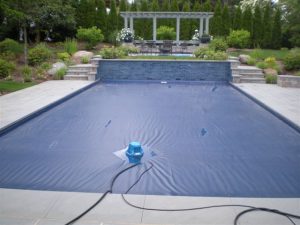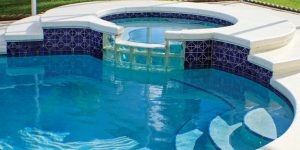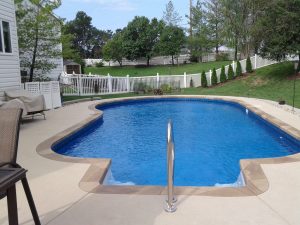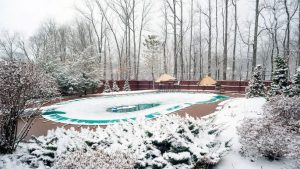 Your swimming pool is one of the biggest sources of water consumption at your home. However, that doesn’t mean you shouldn’t make efforts to save this natural resource. Making active attempts to conserve swimming pool water can help you keep the costs of utilities at a manageable level, which means you will save more money for other things. Here’s what you can do to control water loss from your pool or spa.
Your swimming pool is one of the biggest sources of water consumption at your home. However, that doesn’t mean you shouldn’t make efforts to save this natural resource. Making active attempts to conserve swimming pool water can help you keep the costs of utilities at a manageable level, which means you will save more money for other things. Here’s what you can do to control water loss from your pool or spa.
Pool Covers: A pool cover installation can potentially cut water losses due to evaporation by half. Less water lost through evaporation means you won’t have to overwork your water pump to re-fill your pool. Installing a cover can also reduce algae growth and lower the need for more chemicals, leading to even more savings.
Check for Leaks: Just like a leaky faucet in your home, a pool leak can be a small issue that escalates into a costly problem. Be on the lookout for damp spots downstream of your pool, as well as water-saturated soil. Leaking pipes and valves are also telltale signs of a leak. Contact your pool maintenance team to address these issues as quickly as possible.
Strategic Landscaping: Evaporation from the wind is a possible cause of pool water loss–especially if pool cover installation isn’t feasible for your setup. You can always invest in pool fencing, privacy screening, and shrubs to serve as windbreaks around the pool area. Decreasing the amount of wind that blows across your pool can save water.
By incorporating as many water-saving strategies as possible, you are doing your part in keeping your community beautiful. Contact your pool maintenance company to learn more water conservation strategies.







